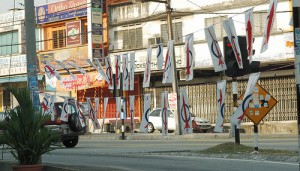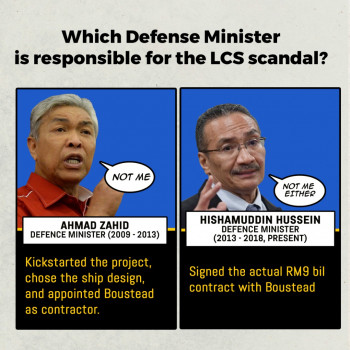by Liew Chin Tong
 Will we see a change of government in Malaysia in the coming general election?
Will we see a change of government in Malaysia in the coming general election?
The 12th general election in 2008 produced a devastating result for Barisan Nasional. BN received 49 percent of popular votes in the Peninsula while the opposition gained a combined vote of 51 percent.
Nationally, after taking into account of votes from Sabah and Sarawak, the tally was reversed with BN 51 percent versus the opposition at 49 percent.
In terms of seats, on 8th March 2008, BN gained 85 seats in the Peninsula while the opposition 80 seats.
The opposition managed to get only one (Bandar Kuching) of the 31 parliamentary seats in Sarawak and one (Kota Kinabalu) of 25 in Sabah. In the Peninsula, the opposition won one (Bakri) of 26 seats in Johor and two (Kuantan and Indera Mahkota) of Pahang’s 13 parliamentary seats.
The four “fixed deposit” states of BN has a total of 95 seats. A change of federal government will happen if the opposition wins a third of the parliamentary seats in the states of Sabah, Sarawak, Johore and Pahang.
Besides the economic issues such as inflation and depleting value of income, the coming 13th general election will also be based on these factors:
1. Malay votes are sensitive to issues of corruption, abuse of power and bullying tactics against political foes (think about Anwar Ibrahim, Adam Adli, etc);
2. At least two traditional vote banks of UMNO – FELDA and the civil service – are in jittery due to poor policy choices (listing of FGV and the new salary scheme).
3. The Indian support for BN is not as solid as it was thought. There are divides along the line of North-South (Pakatan Rakyat is not very strong in southern Peninsula), urban-estate (access to alternative information is minimal in estates), middle class-poor (the poor being more supportive of BN, for whatever reasons).
4. The Chinese support for BN has further eroded since 2008, thanks to Perkasa and Utusan.
5. In Utusan and Perkasa’s zeal to promote its exclusivist causes, a huge segment of “fixed deposits” – the Sabah and Sarawak Christian Bumiputra – are alienated.
6. Sabah UMNO as possible king maker. UMNO won only 79 of the 112 federal seats it contested in 2008. Of which 13 comes from Sabah and one from Labuan. Essentially, the Peninsula UMNO won only 65 seats.
7. Sarawak Chief Minister Taib Mahmud as possible king maker. Allegedly Najib Razak dislikes Taib. If the Prime Minister does not do anything before the next poll, with 14 parliamentary seats which his Parti Pesaka Bumiputra Bersatu (PBB) is likely to retain, Taib may hold the balance of power.
Let’s be clear at the onset that BN has all the built-in advantages as the incumbent. After all, elections in Malaysia were never conducted fairly.
Nearly everyone in BN believes that with Najib’s alphabet soup management, the ruling coalition has recovered from its misfortune in 2008. Some cite by-election victories. Others say this Prime Minister doesn’t sleep in meetings.
However, longevity at helm is a negative factor for BN. Apart from the undemocratic communist regimes like China, Vietnam and North Korea, BN (and its predecessor the Alliance) is the longest serving elected government in the world.
Perhaps it has overstayed its welcome. -The Rocket



